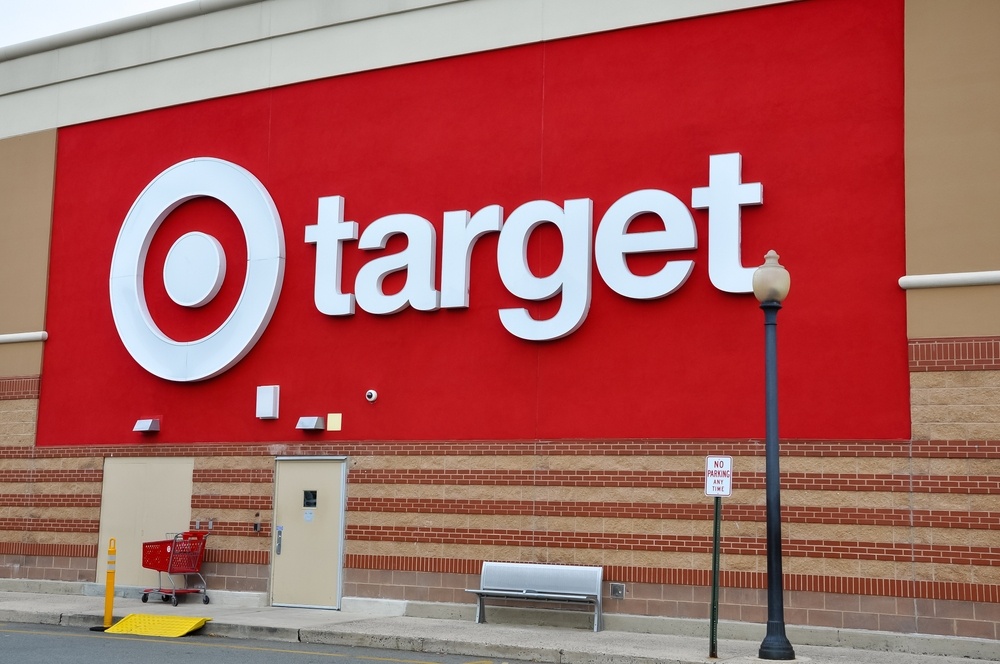[U.S. Stock Report] What happened to Target Department Store's earnings report? Can a stock price fall turn the tide?

Target's performance fell short of expectations, its share price plunged 21%
In the three months ended November 2, Target's same-store sales (both physical and digital channels) grew by only 0.3%, well below analysts 'estimates of 1.5%. Although price discounts have attracted some customers, consumers 'overall purchasing power has weakened, especially in spending on non-essential items such as clothing, household items and televisions. Target executives pointed out that consumers currently pay the most attention to "price and affordability", which makes low-price strategies the key to attracting traffic. However, this strategy has not yet effectively boosted sales performance.
Profits shrink, pressure on imported inventory costs emerges
Target's adjusted earnings per share were $1.85, below Wall Street's forecast of $2.30 and fell short of its own previous forecast. One of the main reasons for the decline in profits was that Target chose to import large quantities of goods in advance in response to a possible port strike, but too much inventory reduced operational efficiency and pushed up costs. Michael Fiddelke, the company's chief financial officer, admitted that although this decision avoided supply chain risks in the short term, it paid an additional cost. Chief Executive Brian Cornell said that although the company is facing more cautious shopping behavior from consumers, this trend is expected to improve in the long term.
Wal-Mart and Amazon perform strongly, Target's competitiveness is challenged
Target's performance contrasts sharply with its competitors. Wal-Mart (WMT) has relied on its low-priced food to attract more inflation-affected shoppers, including some high-income households. Same-store sales in the U.S. rose 5.3%, while sales of non-food items such as grills, toys and tires also rose. Amazon's (AMZN) revenue increased 11% year-on-year in the quarter, driven mainly by strong demand for daily necessities. In contrast, Target's food business accounts for less than half of its revenue, making it relatively weak in the current environment.
Performance is expected to decline throughout the year, and strategies are adjusted to meet challenges
Looking forward, Target lowered its full-year earnings per share forecast to $8.30 to $8.90 from $9 to $9.70. The company plans to continue price cuts to attract more value-oriented consumers, while launching more private brands and new products to increase sales. In addition, the company is paying close attention to possible import tariff challenges and adjusting its operating strategies to accommodate consumers 'more cautious shopping behavior. Chief Executive Cornell reiterated that the company will still face macroeconomic pressures in the short term, but remains optimistic about its long-term prospects.
Experts believe that Target needs to seek market breakthroughs
Target's current challenges highlight the dual pressures of weak demand for non-essential items and increased competition in the retail market. The loss of price-sensitive consumers has benefited competitors such as Wal-Mart, while Target's strategy has not yet been fully realized. Investor confidence in its growth potential has been hit, and stock prices may continue to be under pressure in the short term. However, if Target can launch a more attractive product portfolio and effectively control costs in the future, there is still hope to improve its market position and financial performance.
Disclaimer: The views in this article are from the original Creator and do not represent the views or position of Hawk Insight. The content of the article is for reference, communication and learning only, and does not constitute investment advice. If it involves copyright issues, please contact us for deletion.